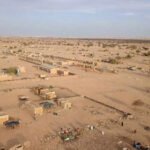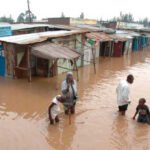The Socio-Economic Rights and Accountability Project (SERAP) has urged the World Bank to encourage governments in Nigeria to publicly commit to transparency and accountability in the spending of $114.28 million Covid-19 fund.
Nigeria is expected to use the fund to prevent, detect and respond to the threat posed by the contagion, with a specific focus on state-level responses.
In an open letter sent to the President of the World Bank, David Malpass, SERAP, Development Diaries understands, urged him to use his office to encourage the federal government and the governments of the 36 states to publicly commit to transparency and accountability.
‘Put pressure on authorities and the 36 state governors to accept voluntary scrutiny by Nigerians and civil society regarding the spending of the funds and use of the resources, including on how they will spend the money to buy medical equipment, and improve access to clean water, sanitation and hygiene’, the SERAP letter, dated 8 August, 2020, read.
‘The World Bank has a responsibility to ensure that federal authorities and state governments are transparent and accountable to Nigerians in how they spend the approved credit and grant.
‘The bank should tread carefully in the disbursement of funds or distribution of resources to states if it is to reduce vulnerability to corruption and mismanagement’.
The letter further expressed SERAP’s concerns over possible mismanagement of funds by state governors due to the lack of effective transparency and accountability mechanisms, given the increasing reports of allegations of corruption and mismanagement of Covid-19 relief funds.
SERAP said, ‘Insisting on transparency and accountability would ensure repayment of the credit, and protect the project objectives and intended purposes for which the funds and resources are approved, disbursed and distributed.
‘The bank’s power to provide credits and grants is coupled with a fiduciary responsibility to ensure that governments spending such funds meet international standards of transparency and accountability, including those entrenched in the UN Convention against corruption to which Nigeria is a state party’.
SERAP further requested that the terms and conditions of the credit, and the exact amount repayable by Nigeria in 30 years – including the details of the interest (if any) and the consequences of Nigeria defaulting – be disclosed and published.
Source: Socio-Economic Rights and Accountability Project
Photo source: World Bank Photo Collection





